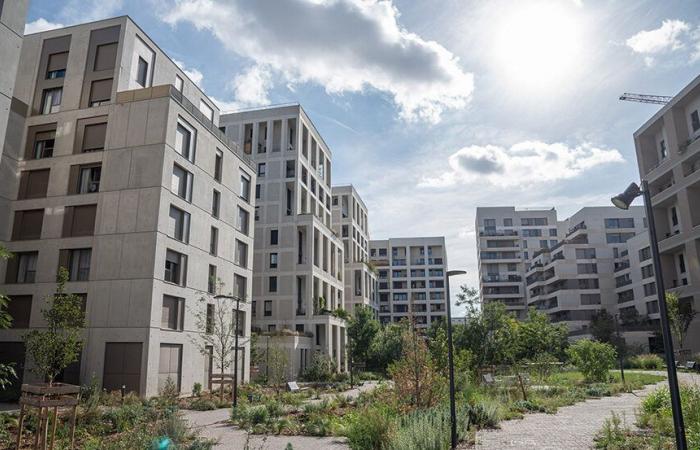
A year and a half after launching its emergency plan to support new housing programs via social landlords, the Métropole de Lyon takes stock of this exceptional measure which will have required a budget of 8 million euros for the time being. .
“At a time when we are rightly told that our territory is one of the most in crisis in terms of rental supply, it was extremely important to put affordable rental housing back on the market.“. Something promised, something due, according to the vice-president of the Metropolis of Lyon in charge of housing, Renaud Payre. Nearly a year and a half after the launch of the 10 million euro emergency plan by the community , it is time to take stock. Has the Lyon Metropolis allowed the new construction sector to get its head above water?
A priori, this sector has at least taken a breath of fresh air. And the numbers speak for the community. Of the 141 operations reported by the promoters, who were no longer able to find buyers, 118 were supported by the Metropolis' emergency plan. Among these, 43 concerned an operation blocked before the construction of housing and 75 operations had marketing stalled.
More broadly, 7,000 homes were affected by the implementation of the community's emergency plan. “These are 7,000 housing units which, without intervention on our part, would either have been significantly slowed down or would never have seen the light of day.“, assures Renaud Payre. Note that the initial objective, in September 2023, was to support 2,000 to 3,000 housing units.
Read also: New housing facing the challenge of rising rates
Promote social and accessible housing
While the vice president's roadmap for housing has been modified in 2022, “switching to crisis management“, the objective was above all to make the rental housing market more fluid. Of the 2,319 homes returned (vacant but not marketed, therefore purchased by lessors at a ceiling price), around 2,100 will be rental homes. They will be for the most accessible to the modest and middle classes, whether as a social rental loan or for social use, but also in intermediate rental housing.
In addition, social housing programming for the year 2024 is on the rise again, with the registration of 3,353 social rental housing units, an increase of 71% compared to 2023.This is a very significant rebound“, confirms Anne Warsmann, president of the social landlord association ABC Hlm. And to remind: “But these results come in a worrying context, where we have been impacted by recent financial developments. We are under pressure“.
“We can clearly see that the donors have done everything this year“
Barbara Falk, regional director of the Bank of the Territories
-Although they will nevertheless take time to emerge from the ground, these new housing units could reduce the deficit encountered by certain municipalities under the SRU law. Indirectly, therefore, the emergency plan contributed to the positive assessment drawn by the prefecture, one year after its resumption of jurisdiction over building permits for social housing in seven municipalities in the Rhône. “Despite the prefect's efforts, obtaining building permits remains an important subject“, underlines Philippe Layec, president of the Federation of Real Estate Developers of France (FPI) of the Lyon region.
On the financing side, here too, the emergency plan has impacted Lyon real estate. In 2024, the Banque des Territoires financed 540 million euros of construction of new housing, compared to 230 million euros in 2023. Same observation for rehabilitation. “We can clearly see that the donors have done everything this year“, assures Barbara Falk, regional director of the Bank of the Territories.
Read also: Social housing in the Rhône: what is the outcome after the resumption of authority over building permits by the State?
No extension for the envelope of 10 million euros
Scheduled for 18 months, this emergency plan will indeed remain an exceptional measure. 8 of the 10 million euros planned have been deployed, but the Lyon Metropolis is not planning any extension for the time being. Almost all operations having been carried out over the first 6 months of the emergency plan, before a considerable slowdown thereafter. This is explained in particular by the lack of own funds of social landlords, necessary for these transactions despite the support of the community.
On the national level, Bruno Bernard and Renaud Payre met the Minister of Housing Valérie Létard. “Since 2017, there has been no housing policy in France, with rather budgetary choices. (…) The positive point that must be given is that the Barnier government and then Bayrou seem more attentive to the question of housing. He begins to have small advances and hopes that are renewed“, the President of the Metropolis gropes forward.
In short, if the emergency plan has had its effect, the breath of fresh air in the new sector remains to be confirmed. “We are no longer in the situation of 2023. Social landlords are no longer in the same health. Like what, it goes very quickly“, deplores Renaud Payre. In one direction or the other, in fact.





